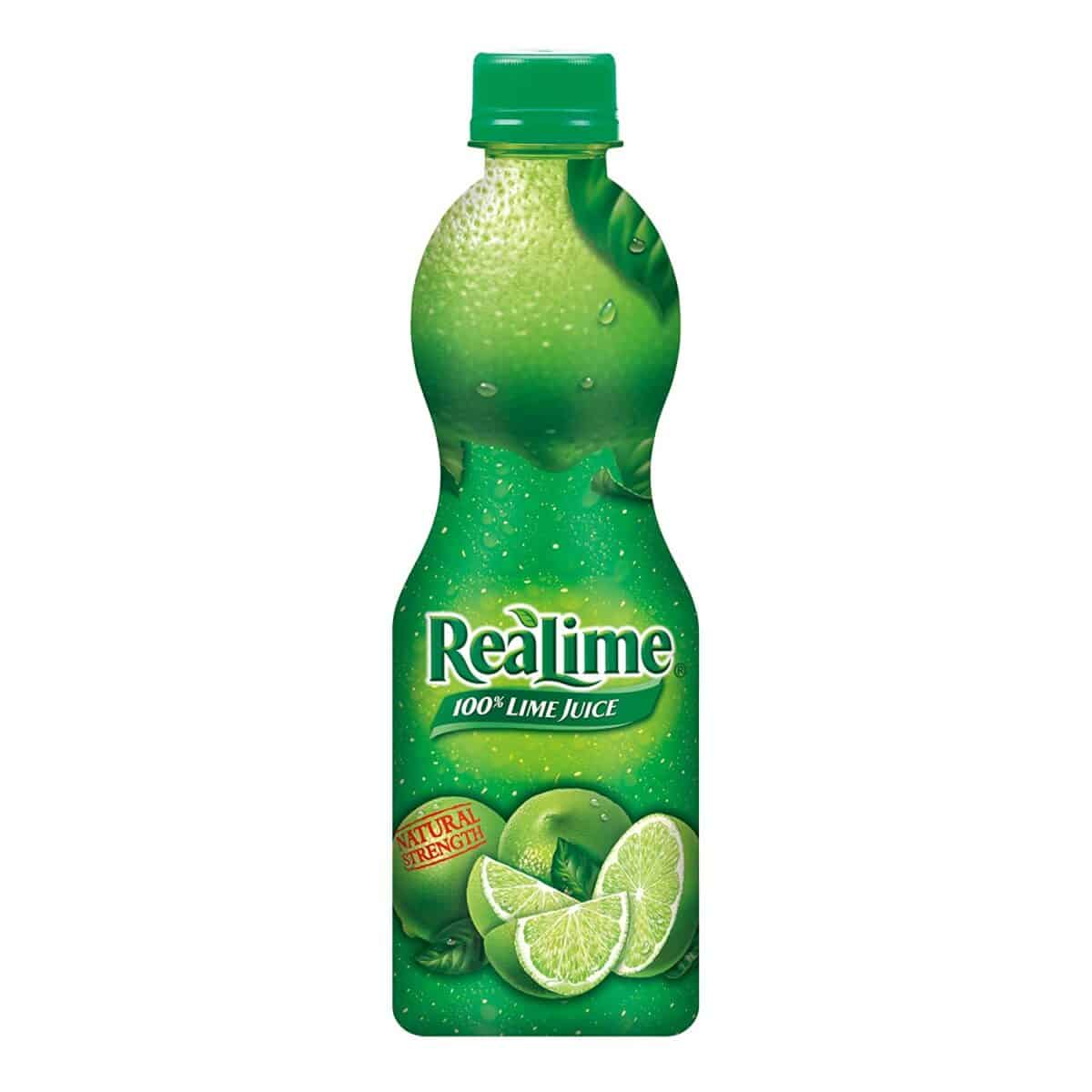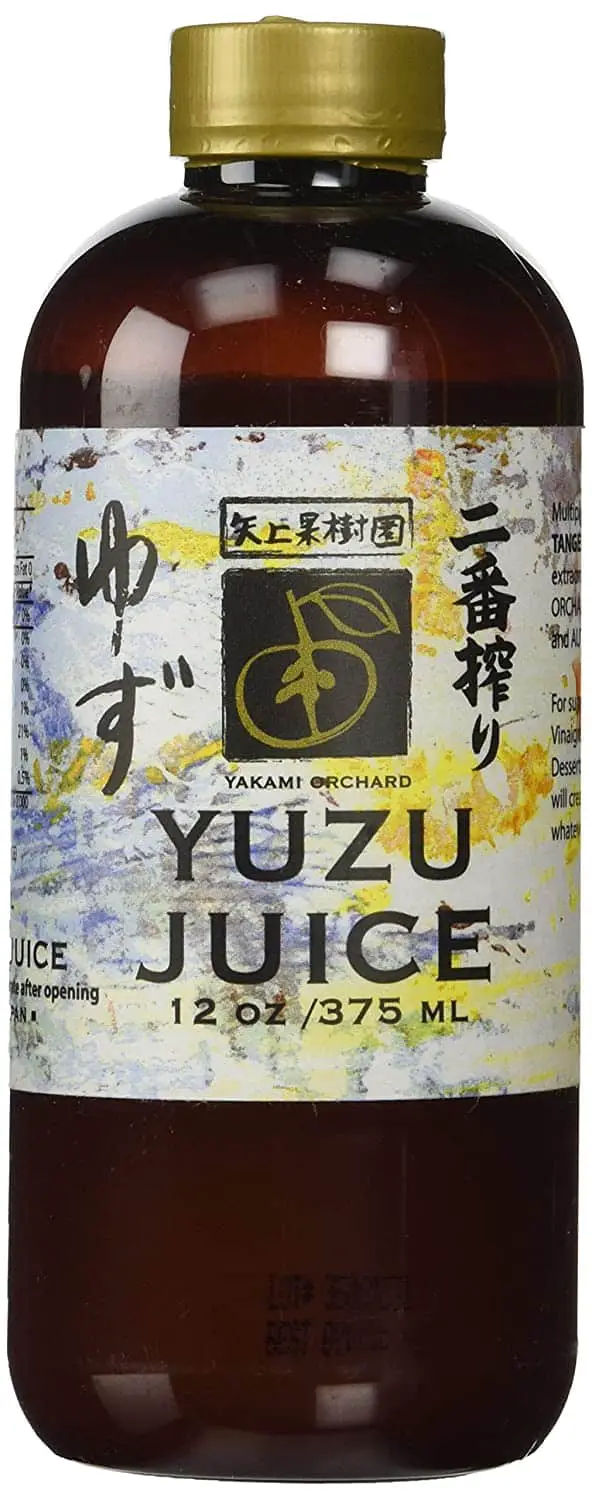Best Substitute for Fresh Yuzu Fruit & Yuzu Juice
If you’re looking into authentic Japanese recipes, you’ll probably come across an ingredient known as yuzu. But wait, I don’t have that where I live!
The best substitute for fresh yuzu is a mandarin or lemon. If you need a yuzu juice substitute, lime juice works pretty well since it’s also tart and citrusy. It’s a little sourer than yuzu but you could substitute it on a 1 to 1 ratio.
Keep reading to find out what other ingredients and fruits you can use as a yuzu substitute and when to use which in your cooking and baking.

This juice is bottled and sold at Asian markets, and it imparts a sour, tangy flavor to dishes.
Yuzu is an East Asian citrus fruit that looks like a small grapefruit. The yuzu fruit is very sour and is often used as a seasoning or garnish in Japanese cuisine.
It’s actually one of the most popular citrus fruits in Japan and has a wide range of uses, from being used as a zesty seasoning in many dishes to ponzu sauce and yuzu tea.

Check out our new cookbook
Bitemybun's family recipes with complete meal planner and recipe guide.
Try it out for free with Kindle Unlimited:
Read for freeIn this post we'll cover:
What is yuzu?
Yuzu is an Asian citrus fruit. Its flavor is best described as a cross between a lemon and a grapefruit.
The yuzu fruit is very sour and tart and is often used as a seasoning or garnish in Japanese cuisine.
The yuzu citrus fruit is about the size of a tangerine and has a yellow-orange outer skin. The flesh of the yuzu fruit is pale green and filled with seeds.
Yuzu juice is made by pressing the yuzu fruit. The juice is bottled and sold at Asian markets.
Yuzu juice imparts a sour, tangy flavor to dishes, and it’s very popular, especially in Japanese and Korean cuisine.
What makes a good substitute for yuzu?
When it comes to yuzu, there really is no perfect substitute. This unique citrus fruit has a flavor that is unlike any other citrus fruit out there.
The closest thing in taste to yuzu would be a mix of lemon and grapefruit, but even that doesn’t quite capture the complex flavors.
Yuzu is very fragrant and has a strong flavor, so it is often used as a garnish or in small amounts to add flavor to a dish.
It has a tart, citrusy flavor with a slight hint of bitterness.
So if you want a substitute, you should look for other citrusy, tart, and fragrant citrus fruit like mandarins, lemons, and grapefruit.
Their juice is similar to yuzu juice except for the fact that it is not as bitter.
If you want to use yuzu for its zest, then look for another citrus fruit with a strong flavor like a lime or orange.
The zest of yuzu is often used to add flavor to sauces, dressings, and marinades for grilled meat. The juice is thin and runny like bottled lemon juice.
Along with its many health advantages, yuzu’s distinctive flavor and scent make it a fantastic addition to a variety of foods.
You’re one of the lucky ones if you were familiar with yuzu juice before it became popular, and you already know how expensive and challenging it is to find in stores.
I’ve compiled a list of the best alternatives to try.
Best fresh yuzu & best substitute for zest: mandarin
The mandarin fruit is very similar to yuzu, and makes an excellent substitute in many dishes. Mandarins are slightly sweeter than yuzu, but have a similar tart and tangy flavor.
The mandarin juice can be used in marinades and even ponzu sauce. Mandarin zest is a great substitute for yuzu zest because it has a strong flavor and aroma.
If you can’t find yuzu, mandarins are the next best thing.
Yuzu is yellow, whereas mandarins are orange, but other than that, they are quite similar in appearance. They are both small and spherical with a dimpled surface.
The mandarin is also a popular citrus fruit in Asia and is used in many traditional dishes. You can easily find mandarins at your local grocery store or supermarket.
Try using mandarin juice or zest in dressings, marinades, or cocktails for a delicious and refreshing flavor.
You can also use the zest and rind in baking recipes, custard, or ice cream for a yuzu-like flavor.
Best yuzu juice substitute: lime juice
Yuzu juice is very popular because of its tart and sour flavor. And what yuzu juice does best is to add an extra zing of flavor to dishes.
Lime juice is a great substitute for yuzu juice because it has a similar tart and sour flavor.
It also has a bit of sweetness which makes it perfect for using in cocktails or baking recipes, but it’s not overly sweet like Meyer lemons or too bitter like grapefruit.

To use lime juice as a yuzu juice substitute, simply add it to your dish in the same proportion as you would yuzu juice.
Lime juice is also a great way to add flavor to marinades, dressings, and sauces. It’s also perfect for making cocktails or mocktails.
Oh, and if you’re making yakiniku sauces, lime juice is the way to go because it’s not too bitter.
I find ReaLime juice is almost good as having fresh limes to squeeze.
Best substitute for yuzu for cooking: lemon & lemon juice
Lemon and concentrated lemon juice is a great substitute for yuzu in many dishes. It has a similar tart and tangy flavor and can be used in the same way. Luckily, lemon juice is quite cheap and easy to find.
Lemon juice is an excellent substitute for yuzu when you make ponzu sauce using our recipe.
To use lemon juice as a yuzu juice substitute, simply add it to your dish in the same proportion as you would yuzu if you don’t need the exact intensity of yuzu.
But if you want the lemon to taste more like yuzu, you can choose green lemons over other varieties as they taste sourer and have some herbal flavors, much like yuzu.
To lessen its pronounced lemon flavor, use lemon juice in a 4:2:1 ratio with lime juice and grapefruit juice. This combination will give you a more yuzu-like flavor.
Lemon is also a fragrant citrus fruit and can be used to add flavor to sauces, dressings, or marinades. The zest can also be used in baking recipes or as part of meat marinades for BBQ.
Just don’t use Meyer’s lemons because those are too sweet and not tart enough. Meyer’s lemons can work as a yuzu juice substitute in cakes, custards, and baked goods if you don’t mind them a bit sweeter.
Best yuzu substitute for baking: orange juice
Orange juice is a great yuzu substitute for baking. It has a similar tart and tangy flavor but is also slightly sweet.
Just be careful to use pure orange juice, not the bottled juice with a ton of added sugar.
This makes it perfect for using in cakes, custards, or other baked goods, and of course, oranges are quite fragrant too.
When using yuzu for baking, it’s best to use less because it’s sour. You can use less orange juice because it’s sweet.
Simply add orange juice to your dish in the same proportion as you would yuzu juice, or use less if you don’t want it to be too sweet.
If you’re looking for a yuzu substitute for a savory dish, then orange juice is not going to be the best option. It might just be a tad too sweet and lacks the tart flavor of the yuzu.
Best substitute for fresh yuzu: yuzu juice
If you’re just looking for a substitute because you can’t find fresh yuzu, you can get some bottled yuzu juice online, and it’s by far the best option!
Bottled yuzu juice is a great substitute for yuzu, and it can be found in most Asian grocery stores.
It has a similar tart and tangy flavor, and can be used in many of the same dishes. Try yuzu juice in dressings, marinades, or cocktails for a unique and delicious flavor.

If you have yuzu juice on hand, you can make this dashi yuzu vinaigrette recipe that works on all types of salads.
Yakami Orchard sells pure yuzu juice from Japan that has a subtle flavor.
Dekopon
Dekopon is a type of citrus fruit that is similar to yuzu. It is slightly sweeter than yuzu, but has a similar tart and tangy flavor.
Dekopon can be used as a substitute in many dishes, and can be found in most Asian grocery stores.
It looks like an orange with a bumpy surface, and its flesh is very juicy. Dekopon is often used in salads, cocktails, or as a garnish.
It’s kind of like a hybrid tangerine with a flavor like orange and preserved lime mixed together.
With its inherent sweetness, dekopon would complement sweets like trifle, custard tart, and sorbet the best.
In order to balance savory, meaty recipes, it is also occasionally used to lend a sweet and tangy flavor.
You’ll have to buy dekopon and squeeze out the juice yourself, as it’s not usually sold in bottles.
Bergamot
Bergamot is a bitter and sour citrus fruit that is a great yuzu juice substitute for people who don’t like it.
It has a green or yellow color and is similar to lime. The flavor is quite strong, and it’s often used in Earl Grey tea.
Bergamot can be found in most Asian grocery stores.
The fruit is well-known for its delicate floral notes, which are reminiscent of citronella and jasmine flowers. It is also very aromatic.
If you want to substitute bergamot for yuzu in a recipe, use the same proportion as you would yuzu.
The peel can be used as a garnish for cocktails or as part of cakes and sweets, just like yuzu peel.
Procimequat
Procimequat is another citrus fruit that can be used as a yuzu substitute.
It’s similar in flavor to yuzu, but not as tart. Procimequat can be found in most Asian grocery stores.
The fruit is small and round, with a green or yellow color. It has a sour and slightly bitter taste with a hint of sweetness.
One interesting thing about it is that it tastes like a cross between
Procimequat can be used in the same way as yuzu and is often used in cocktails or as a garnish.
It can also be used in dressings, marinades, or sauces. Simply add procimequat to your dish in the same proportion as you would yuzu.
FAQs
Can you use Meyer’s lemons as a yuzu substitute?
Meyer’s lemons are a type of lemon that is sweeter and less tart than regular lemons. They can be used as substitutes for Yuzu, but they’re not ideal.
Since Meyer’s lemons are much sweeter than a regular lemon, they don’t provide the same acidic tart flavor that yuzu does.
I prefer to use other types of lemon as a yuzu substitute.
Meyer’s lemons are often used in baking because of their sweetness.
If you want to use them as a yuzu substitute, I recommend using them in sweet recipes instead of savory ones or dressings where you don’t mind the sweeter taste.
Can yuzu be used in place of lemon?
Yuzu can be used as a substitute for lemon because it has quite a similar flavor and texture.
It’s not the cheapest substitute, though, as a bottle of yuzu juice is a lot pricier than a bottle of lemon juice.
What is a substitute for yuzu essential oil?
There are a few substitutes for yuzu essential oil, but the most common one is bergamot oil. Bergamot oil has a similar citrusy and floral scent, making it a good yuzu essential oil substitute.
Other substitutes for yuzu essential oil include lemon oil, grapefruit oil, and tangerine oil. All of these oils have a similar citrusy smell with different floral notes.
What’s a good substitute for yuzu kosho?
Yuzu kosho is a type of Japanese chili paste that is made with yuzu, chili peppers, and salt. It’s used as a seasoning in many dishes.
The best yuzu kosho substitute is wasabi sauce or ponzu sauce.
Takeaway
Yuzu is a delicious citrus fruit that has a tart and tangy flavor. It can be used in many dishes, from salad dressings to cocktails.
If you can’t find yuzu, there are several substitutes that will work just as well, such as lemon juice, mandarins, and dekopon.
Keep in mind that each substitute will have a slightly different flavor, so you may need to adjust the amount you use depending on the recipe.
But the best way to pick a substitute is to make sure it’s sour and tangy like the yuzu fruit!
Excited about cooking with citrus? Try this Camaron Rebosado Recipe (Citrus Battered Shrimp)
Check out our new cookbook
Bitemybun's family recipes with complete meal planner and recipe guide.
Try it out for free with Kindle Unlimited:
Read for freeJoost Nusselder, the founder of Bite My Bun is a content marketer, dad and loves trying out new food with Japanese food at the heart of his passion, and together with his team he's been creating in-depth blog articles since 2016 to help loyal readers with recipes and cooking tips.
